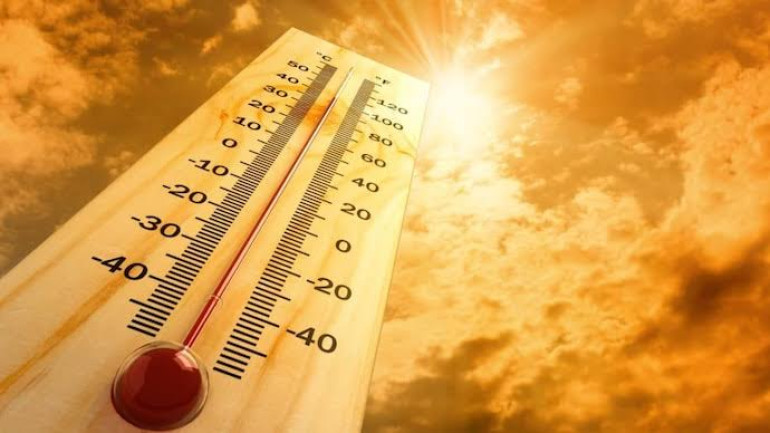2024 Marks First Year with Global Temperatures Above 1.5°C Since Pre-Industrial Era
Rising Climate Disasters Highlight Global Warming’s Impact
Political Inaction Persists Despite Escalating Climate Crises
BRUSSELS, Jan 10 – For the first time, global temperatures in 2024 surpassed 1.5°C above pre-industrial levels, a key threshold set under the 2015 Paris Agreement to limit climate change, scientists reported on Friday.
The World Meteorological Organization (WMO) confirmed the temperature breach after analyzing findings from experts in the U.S., U.K., Japan, and the European Union.
“Global heating is an undeniable reality,” said United Nations Secretary-General António Guterres in a statement. He urged immediate action, warning that while the worst climate outcomes can still be prevented, decisive leadership is urgently needed.
A grim warning on climate change coincided with devastating wildfires sweeping through Los Angeles, driven by intense winds. The fires have claimed 10 lives and destroyed nearly 10,000 buildings so far, underscoring how climate change is fueling more frequent and severe natural disasters.
According to the European Union’s Copernicus Climate Change Service (C3S), the planet’s temperature is now reaching levels never before experienced in modern history. Scientists attribute this alarming trend to greenhouse gas emissions, primarily from the burning of fossil fuels. The crisis highlights the urgent need for action to address the worsening climate emergency.
In 2024, the planet’s average temperature was 1.6°C higher than the pre-industrial average from 1850-1900, according to the Copernicus Climate Change Service (C3S). The World Meteorological Organization (WMO) confirmed that the past decade is now the hottest on record.
Climate change is intensifying storms and heavy rainfall, as a warmer atmosphere holds more moisture, fueling extreme downpours. Atmospheric water vapor reached an all-time high in 2024, and the U.S. National Oceanic and Atmospheric Administration reported it as the third-wettest year in history.
The year 2024 showcased the devastating global impacts of climate change, with catastrophic fires in Bolivia and Venezuela, deadly floods in Nepal, Sudan, and Spain, and heatwaves in Mexico and Saudi Arabia claiming thousands of lives. These events underscored that climate change spares no one, affecting both the richest and poorest alike. Yet, despite these mounting crises, political commitment to tackling the issue has weakened in some countries, threatening the global effort to uphold the 2015 Paris Agreement’s goal of limiting temperature rise to 1.5°C above pre-industrial levels.







